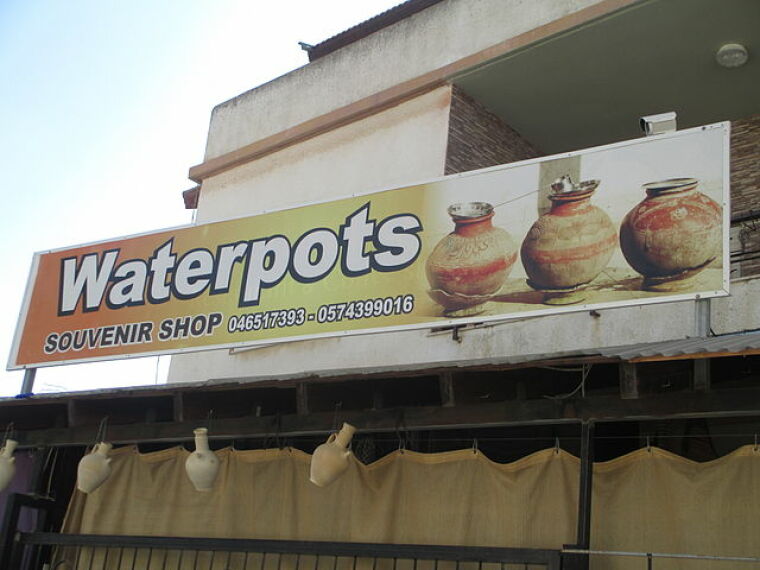Archaeologists discover ancient mug shop near site where Jesus turned water into wine

Israeli archaeologists have discovered a 2,000-year-old mug workshop located near the ancient city of Cana, where Jesus performed the miracle of turning water into wine.
The site, located near the Galilee village of Reineh in northern Israel, was found by archaeologists during construction work for a municipal sports center by the local council.
According to CBN News, the archaeologists were working on two sites at Reineh, about a kilometer apart, just south of the modern village of Kafr Kanna, which is believed to be the site of biblical Cana.
Among the artifacts found at the site include fragments of chalk stone mugs and bowls along with thousands of cylindrical chalk cores discarded in the process of hollowing out the vessels with a lathe.
Excavation director Dr. Yonatan Adler said that the discovery highlights the significance of ritual purity in the lives of Galilean Jews during Jesus time.
"The reason for this curious choice of material seems to have been religious. According to ancient Jewish ritual law, vessels made of pottery are easily made impure and must be broken. Stone, on the other hand, was thought to be a material that can never become ritually impure, and as a result ancient Jews began to produce some of their everyday tableware from stone," Adler told Agence France-Presse.
The practice has been described in John's New Testament account of the Cana wedding, which spoke of larger vessels: "There were set there six waterpots of stone, after the manner of the purifying of the Jews."
Adler noted that evidence of the production of large jars have not been found at the site, but he said that the stone jars that would have been used at Cana would have been made at a similar workshop in the area.
The walls, ceiling and floor of the cave where the workshop was found bears ancient chisel marks, indicating that it was a hewn cave.
Adler noted that the production waste discovered in the cave indicate that the workers produced mainly mugs with handles and various sizes of bowls. He said that the discovery provides "striking evidence that Jews here were scrupulous regarding the purity laws."
Two similar sites had been excavated near Jerusalem prior to the excavation in Reineh, according to Adler.
"There has always been a question amongst scholars regarding the nature of Judaism in Galilee," Adler said, noting the importance of Judaism in studying early Christianity. "The question is, who are these people that are living in Galilee?" he asked.
 Christians don't have to affirm transgenderism, but they can’t express that view at work: tribunal
Christians don't have to affirm transgenderism, but they can’t express that view at work: tribunal Archaeology discovery: Medieval Christian prayer beads found on Holy Island
Archaeology discovery: Medieval Christian prayer beads found on Holy Island Presbyterian Church in America votes to leave National Association of Evangelicals
Presbyterian Church in America votes to leave National Association of Evangelicals Over 50 killed in 'vile and satanic' attack at Nigerian church on Pentecost Sunday
Over 50 killed in 'vile and satanic' attack at Nigerian church on Pentecost Sunday Ukrainian Orthodox Church severs ties with Moscow over Patriarch Kirill's support for Putin's war
Ukrainian Orthodox Church severs ties with Moscow over Patriarch Kirill's support for Putin's war Islamic State kills 20 Nigerian Christians as revenge for US airstrike
Islamic State kills 20 Nigerian Christians as revenge for US airstrike Man who served 33 years in prison for murder leads inmates to Christ
Man who served 33 years in prison for murder leads inmates to Christ


 Nigerian student beaten to death, body burned over ‘blasphemous’ WhatsApp message
Nigerian student beaten to death, body burned over ‘blasphemous’ WhatsApp message 'A new low': World reacts after Hong Kong arrests 90-year-old Cardinal Joseph Zen
'A new low': World reacts after Hong Kong arrests 90-year-old Cardinal Joseph Zen Iran sentences Christian man to 10 years in prison for hosting house church worship gathering
Iran sentences Christian man to 10 years in prison for hosting house church worship gathering French Guyana: Pastor shot dead, church set on fire after meeting delegation of Evangelicals
French Guyana: Pastor shot dead, church set on fire after meeting delegation of Evangelicals ‘Talking Jesus’ report finds only 6% of UK adults identify as practicing Christians
‘Talking Jesus’ report finds only 6% of UK adults identify as practicing Christians Mission Eurasia ministry center blown up in Ukraine, hundreds of Bibles destroyed: 'God will provide'
Mission Eurasia ministry center blown up in Ukraine, hundreds of Bibles destroyed: 'God will provide' Church holds service for first time after ISIS desecrated it 8 years ago
Church holds service for first time after ISIS desecrated it 8 years ago Burger King apologizes for 'offensive campaign' using Jesus' words at the Last Supper
Burger King apologizes for 'offensive campaign' using Jesus' words at the Last Supper Uganda: Muslims abduct teacher, burn him inside mosque for praying in Christ’s name
Uganda: Muslims abduct teacher, burn him inside mosque for praying in Christ’s name